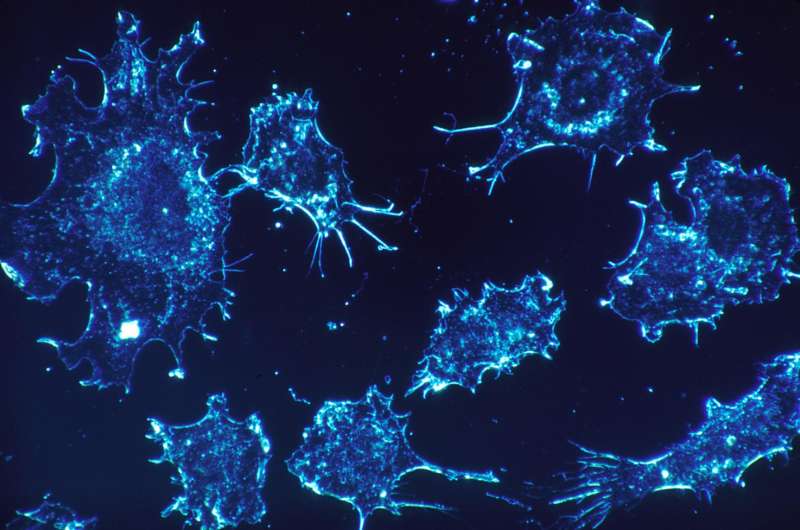Credit: CC0 Public Domain
Three simultaneous safety and efficacy studies of the drug larotrectinib reported an overall response rate of 75 percent for patients ages four months to 76 years with 17 different cancer diagnoses. All patients had tumors with tropomyosin receptor kinase (TRK) fusions, gene mutations that switch on TRK genes, allowing cancer growth. The studies indicate larotrectinib as a potentially powerful new treatment approach for the approximately 5,000 patients with these forms of cancer.
Findings from the multi-center investigation were published in the Feb. 21 online issue of the New England Journal of Medicine (NEJM). Co-principal investigators were David Hong, M.D., professor of Investigational Cancer Therapeutics at The University of Texas MD Anderson Cancer Center, and David Hyman, M.D., chief of Early Drug Development at Memorial Sloan Kettering Cancer Center.
"In this series of studies, larotrectinib had rapid, potent and durable anti-tumor activity in children and adults who had solid tumors with TRK fusions without regard to patient age, tumor tissue and fusion status," said Hong. "Our data not only validated TRK fusions as therapeutic targets, but also showed the potential for larotrectinib as a therapeutic agent for TRK-fusion-positive cancers."
The three protocols included a Phase I study of adults, a Phase I-II study of children, and a Phase II study with adolescents and adults. The investigators followed 55 patients who demonstrated minimal low-grade adverse effects.
Eligible patients had previously been diagnosed with locally advanced or metastatic solid tumors, received standard-of-care therapy and had functioning major organs. The study encompassed 17 unique cancer diagnoses including infantile fibrosarcoma (seven patients); mammary analogue secretory carcinoma of the salivary gland (12 patients); thyroid, colon, lung and gastrointestinal stromal tumors (20 patients); and 16 patients with other cancers.
"TRK fusions defined a unique molecular subgroup of advanced solid tumors in children and adults in whom larotrectinib was highly active," said Hong. "Study results suggest that long-term administration of larotrectinib is feasible for patients with TRK-fusion-positive cancers. However, screening strategies that include assays with the ability to detect TRK fusions will need to be developed to better identify patients who may benefit from this therapy."
Hong added that while clinically meaningful durability of response was observed in study patients, continued follow up could provide further confirmation of the drug's benefit.
Provided by University of Texas M. D. Anderson Cancer Center


















